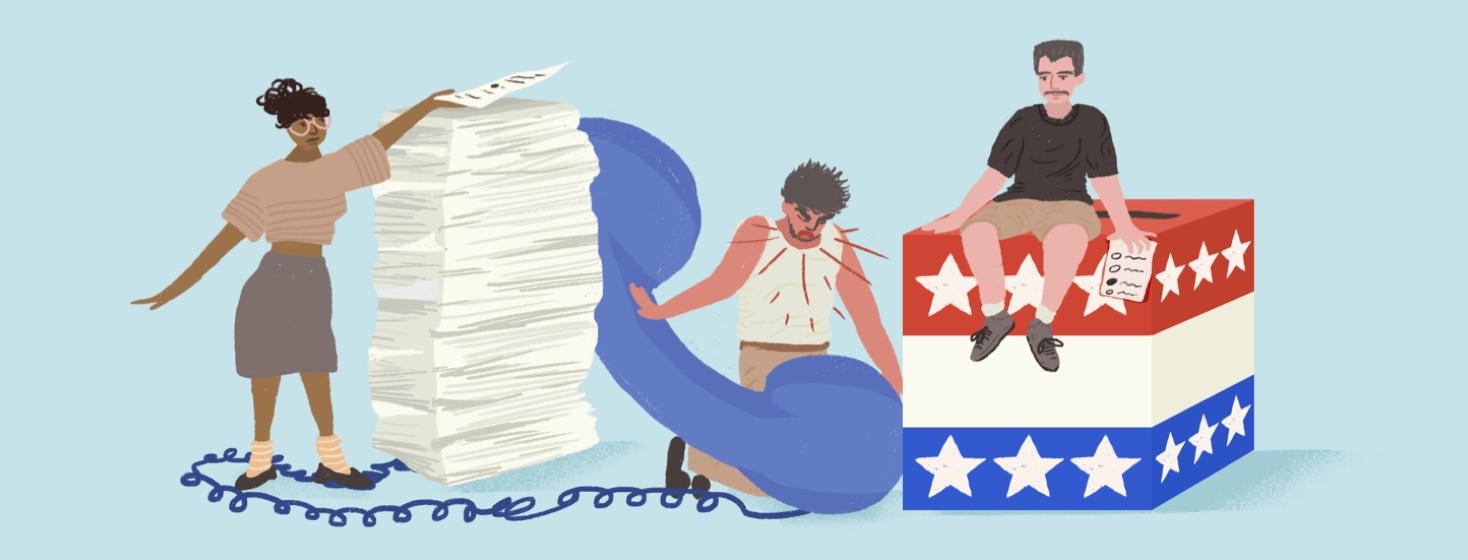Your Voice, Your Vote: Advocating for Change
The goal of this article is to bring about awareness of issues related to people with disabilities and to encourage eligible voters to exercise that right.
Anyone looking for my views on political matters can check out my Twitter, this article is intended to serve as encouragement and informative to all voters, regardless of party affiliation.
Voting as a right, an honor, a responsibility, a privilege
Early on in my childhood, I learned that every 4 years the country elects a president. My parents would take me to the voting booth and show me the basics of our constitutional right to vote. Voting is not a requirement of citizenship, but it is an honor, a responsibility, and a privilege. My Dad would often remind my brother and me that "if we don’t vote, we are in essence forfeiting the most American of our rights: our right to complain.”
Even though voting is the primary way of participating in the democratic process, only 50 to 60 percent of the voting-age population exercise this right. The 2020 election is slated to bring in near $11 billion in fundraising. The CDC estimates that as many as 61 million Americans are living with a disability, that’s 26 percent of the population. The power of our combined voice is immense, it’s the power to make a change.1-3
Guaranteed rights and amendments
Three constitutional amendments guarantee the right to vote. A fourth eliminated poll taxes as a barrier to voting. Ratified in 1870, the fifteenth amendment guaranteed the right to vote for African American men. Although the right was limited in some states by barriers such as literacy tests. In 1920, the nineteenth amendment guaranteed the right to vote for women. Then in 1964, the twenty-fourth amendment eliminated poll taxes. Finally, in 1971, the twenty-sixth amendment lowered the voting age to 18.4
In addition to constitutional amendments, there have been laws and acts passed to expand rights and access to the polls. The Voting Rights Act of 1965 prohibited discrimination based on race, color, or language spoken. However, it wasn’t until the 1980s that the Voting Accessibility for the Elderly and Handicapped Act of 1984 required polling places to be accessible to people with disabilities.4
Assistance and accessibility
There are many rights guaranteed by voting acts and laws. Individuals with disabilities have the right to vote, unassisted in private, and have accessible voting machines for all voters. There are specific provisions for wheelchair-accessibility, handrails, and equipment for blind or visually impaired voters. Voters with disabilities are allowed to seek help from poll workers to use accessible machines and to bring someone to help you vote.3
There are multiple issues that face people with disabilities. These vary from condition to condition but there are many common threads. The following are a few highlights of issues facing our community:5
- Accessibility to healthcare and the Affordable Care Act,
- Coverage for preexisting conditions,
- Healthcare costs and Medicaid eligibility,
- Telehealth,
- Barriers to public transportation,
- Social Security Disability,
- Unemployment,
- Affordable and fair housing,
- Subminimum wage
- Mandatory disability training for law enforcement
- Appointing people with disabilities to legislative/administrative posts
Vetting the candidates
Understanding where candidates stand on these issues can help identify allies to our broader disability community. With approximately 26 percent of the nation living with a disability, it would stand to reason that disabilities are a bipartisan issue. Unfortunately, partisan politics are a hurdle to conquer. Checking a candidate’s website for their views on disability issues is a great way to start. Another approach would be to contact a local field office and speak to a representative over the phone.3
Legislative advocacy for change
Voting is undoubtedly a great way to influence the political landscape. Legislative advocacy is of equal importance in shaping policies and legislation in this country. Multiple times a year Project Sleep has opportunities to participate in legislative advocacy. Project Sleep’s areas of focus include:6
- Advancing sleep research
- Accelerating treatment options
- Ensuring access to healthcare
- Furthering education, awareness, and training
Getting involved doesn’t require love and comfort with public speaking. Involvement doesn’t involve travel. Advancing the cause of the sleep community doesn’t require financial contributions. It does require a slight time commitment and a desire for change.
All it takes is a few emails to your congressional representatives using Project Sleep’s talking points, and sometimes phone calls. Legislative advocacy has been the most rewarding part of my advocacy adventures. My voice matters, it is as strong as my vote. Involvement is just as much my responsibility as my right to vote. The World’s Strongest Person Having narcolepsy with cataplexy approves this message.

Join the conversation